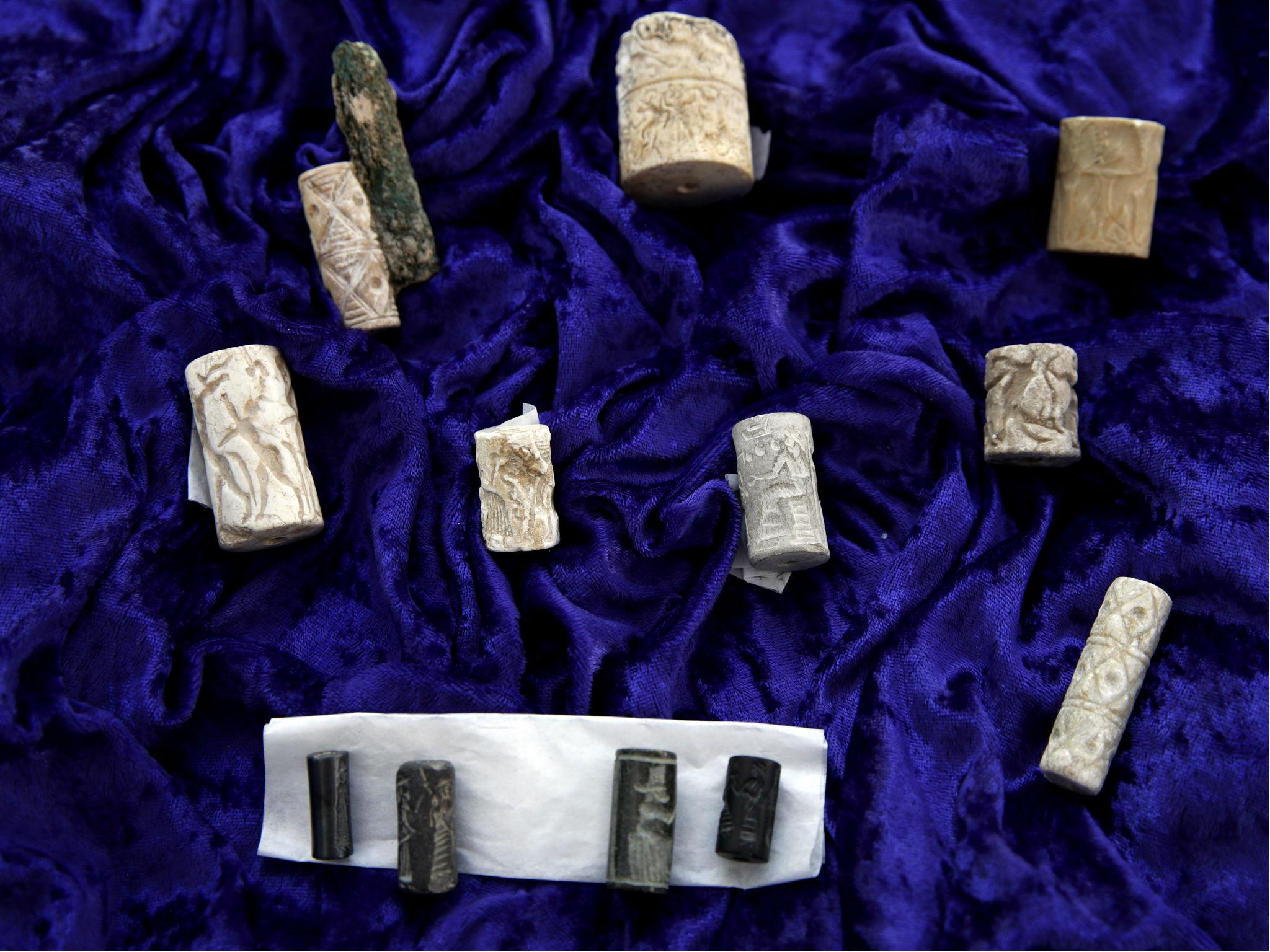Thousands of ancient Iraqi artifacts ‘smuggled’ to US by Hobby Lobby returned to the country

The thousands of ancient artefacts that were smuggled into the United States and delivered to the head of Hobby Lobby, the arts and crafts chain, have been returned to the Iraqi government.
The devout Christian owners of the chain agreed to pay a $3 million fine last year to settle a lawsuit over the company’s role in smuggling the artefacts, which include clay tablets, seals, and other archaeological objects that authorities have said were looted from the war-ravaged Middle Eastern country.
US Immigration and Customs Enforcement announced that the artefacts had been returned Wednesday to Iraq’s US ambassador, Fareed Yasseen.
Prosecutors who worked to return the objects say that Steve Green, the president of Hobby Lobby, bought more than 5,500 artefacts in 2010 for $1.6 million. The scheme allegedly involved many middlemen, misleading invoices, and paperwork that allowed the artefacts to be smuggled past US customs agents.
An email to Hobby Lobby for comment was not immediately returned.
The prosecutors said that some ancient cuneiform tablets were labelled as “ceramic tiles” originating in Turkey or Israel, and that other artefacts were deliberately undervalued at $1 each, even though they were actually clay bull that were worth a combined $84,120.
Mr Green — who financed the $500 million Museum of the Bible that opened in Washington last year — and his associates also shipped the artefacts to multiple addresses in Oklahoma City to avoid drawing the attention of customs agents, prosecutors said.
Mr Green pleaded naivety in his business dealings with the individuals from the Middle East, even though he began collecting ancient artefacts in 2009. Prosecutors said that Hobby Lobby’s lawyer had warned that acquiring the ancient artefacts carried “considerable” risk, since many ancient objects for sale may be stolen.
“Early on, we were always trying to find the best experts we could to help us as we were acquiring antiquities,” Mr Green told the Associated Press last year. “And so as mistakes are made, we learn from those mistakes and put processes and procedures in place to try to improve on that. ... There’s a lot of complexities in areas that I’m still a novice at. But we are engaging the best experts we can to advise and help us in that process.”
Selling ancient artefacts can be a good source of revenue for terrorist organisations, including Isis. Bob Murowchick, an assistant professor in archaeology and anthropology at Boston University, told the AP that most antiquities are “not legally removed” and that collectors need to ask the right questions in order to make sure they are not financing terrorism.
“It’s a very formal business in some areas,” Mr Murowchick said. “You collect things because you love them. Sometimes you don’t ask the things that need to be asked.”
Hobby Lobby, an Oklahoma-based private company, fought for and won a legal battle in the Supreme Court that granted the organisation an exemption from providing certain contraceptive coverage for employees in 2014.
The Associated Press contributed to this report.
Join our commenting forum
Join thought-provoking conversations, follow other Independent readers and see their replies
Comments
Bookmark popover
Removed from bookmarks